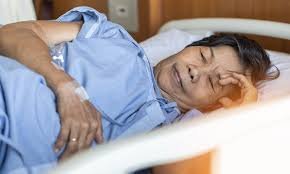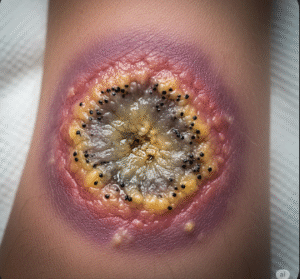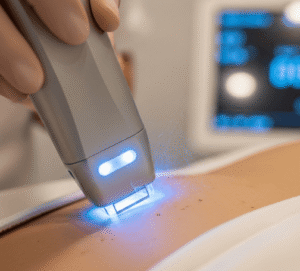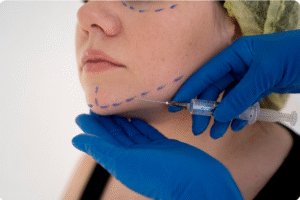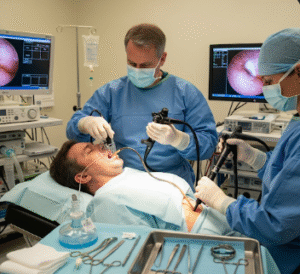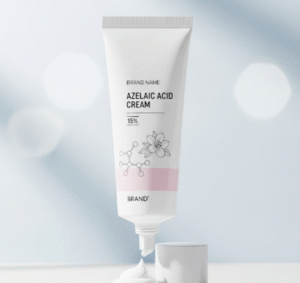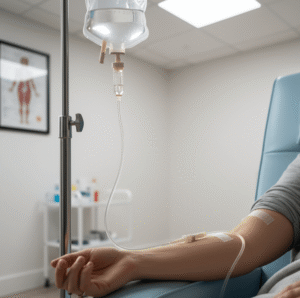Overview
Motor Neuron Disease (MND) is a rare but serious neurological condition that progressively damages the motor neurons, which control muscle movement. Over time, this leads to muscle weakness, wasting, and difficulties with mobility, speech, swallowing, and breathing. In Korea, MND is managed with a multidisciplinary approach involving neurologists, rehabilitation specialists, respiratory care, and palliative care teams. Advanced hospitals such as Seoul National University Hospital, Samsung Medical Center, and Asan Medical Center are equipped with state-of-the-art facilities for diagnosis, treatment, and ongoing support for patients living with MND.
What is Motor Neuron Disease?
Motor Neuron Disease refers to a group of progressive neurological disorders that damage the motor neurons in the brain and spinal cord. The most common form is Amyotrophic Lateral Sclerosis (ALS), which is often referred to interchangeably with MND. The disease typically affects adults, usually between 40 and 70 years of age, and is slightly more common in men. While the cause is not fully understood, MND is associated with both genetic and environmental factors.
Symptoms
- Muscle weakness, starting in the hands, arms, or legs
- Muscle cramps or twitching (fasciculations)
- Difficulty walking or climbing stairs
- Slurred speech and difficulty swallowing
- Progressive weight loss due to muscle wasting
- Shortness of breath, especially during activity or at night
- Eventual paralysis in advanced stages
Causes
- Genetic mutations (5–10% of cases are inherited)
- Environmental exposures (toxins, heavy metals, military service associations)
- Abnormal protein buildup in nerve cells
- Dysfunction of the immune system or oxidative stress
- In many cases, the exact cause remains unknown
Risk Factors
- Family history of MND or ALS
- Male gender (slightly higher risk)
- Age between 40 and 70 years
- History of smoking or toxin exposure
- Certain occupations linked to higher risk (e.g., agricultural, military)
Complications
- Severe muscle weakness leading to loss of independence
- Swallowing difficulties (risk of malnutrition and aspiration pneumonia)
- Breathing problems requiring assisted ventilation
- Communication challenges due to speech difficulties
- Emotional and psychological impact (depression, anxiety)
- Shortened life expectancy (average 3–5 years after diagnosis, though some live much longer with supportive care)
Prevention
Currently, there is no known way to prevent MND. However:
- Genetic counseling may help families with a history of MND.
- Healthy lifestyle choices such as regular exercise, avoiding smoking, and reducing toxin exposure may lower general neurological risks.
- Early diagnosis and intervention can slow progression and improve quality of life.
Treatment Options in Korea
Although there is no cure for MND, Korea offers advanced supportive treatments and research-based care to improve survival and quality of life.
- Diagnosis
- Neurological examination
- Electromyography (EMG) and nerve conduction studies
- MRI to exclude other neurological conditions
- Genetic testing in familial cases
- Medical Management
- Riluzole – slows disease progression and extends survival
- Edaravone (Radicava) – available in Korea, shown to reduce nerve damage in some patients
- Symptom management with muscle relaxants, antidepressants, and pain relief
- Rehabilitation & Supportive Care
- Physiotherapy and occupational therapy to maintain mobility
- Speech and language therapy for communication difficulties
- Nutritional support (feeding tubes in advanced cases)
- Respiratory therapy with non-invasive ventilation (NIV) or mechanical ventilators

